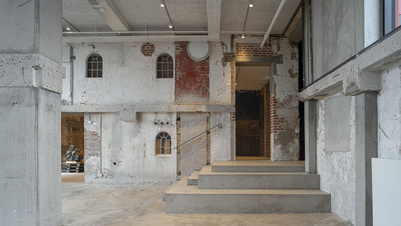International Lecture Series with Timothy Morton: Stop Looking at Cities the Wrong Way
Auditorium 2
Philip De Langes Alle 10
1435 København K
This open lecture at KADK is taught by Timothy Morton, professor at Rice University. One of the things that modern society has damaged has been thinking. Unfortunately, one of the damaged ideas is that of Nature itself.
How do we transition from seeing what we call “Nature” as an object “over there”? And how do we avoid “new and improved” versions that end up doing much the same thing (embeddedness, flow and so on), just in a “cooler,” more sophisticated way? When you realize that everything is interconnected, you can't hold on to a concept of a single, solid, present-at-hand thing “over there” called Nature.
About Timothy Morton
Timothy Morton is Rita Shea Guffey Chair in English at Rice University. He gave the Wellek Lectures in Theory in 2014 and has collaborated with Björk, Haim Steinbach and Olafur Eliasson.
He is the author of Dark Ecology: For a Logic of Future Coexistence (Columbia, 2016), Nothing: Three Inquiries in Buddhism (Chicago, 2015), Hyperobjects: Philosophy and Ecology after the End of the World (Minnesota, 2013), Realist Magic: Objects, Ontology, Causality (Open Humanities, 2013), The Ecological Thought (Harvard, 2010), Ecology without Nature (Harvard, 2007), eight other books and 160 essays on philosophy, ecology, literature, music, art, architecture, design and food.


